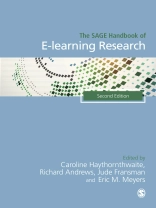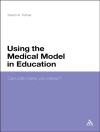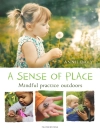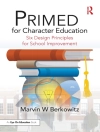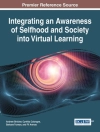The new edition of The SAGE Handbook of E-Learning Research retains the original effort of the first edition by focusing on research while capturing the leading edge of e-learning development and practice. Chapters focus on areas of development in e-learning technology, theory, practice, pedagogy and method of analysis.
Covering the full extent of e-learning can be a challenge as developments and new features appear daily. The editors of this book meet this challenge by including contributions from leading researchers in areas that have gained a sufficient critical mass to provide reliable results and practices.
The 25 chapters are organised into six key areas:
1. THEORY
2. LITERACY & LEARNING
3. METHODS & PERSPECTIVES
4. PEDAGOGY & PRACTICE
5. BEYOND THE CLASSROOM
6. FUTURES
Содержание
1. Introduction — Caroline Haythornthwaite, Richard Andrews, Jude Fransman & Eric Meyers
Part 1 THEORY
2. Online pedagogy from the learning sciences perspective — Christopher Hoadley
3. Networked learning — Chris Jones & Maarten de Laat
4. A theory of learning for the mobile age — Mike Sharples, Josie Taylor & Giasemi Vavoula
5. Posthumanism and research in digital education — Sian Bayne
PART 2 LITERACY & LEARNING
6. Reshaping rhetorical space: elearning through online asynchronous discussion — Terry Locke
7. Liber ludens: games, play and learning — Andrew Burn
8. Multimodality in virtual learning environments: exploring traces of the page in designs of screens — Myrrh Domingo
9. Second language learning online — Carol A. Chapelle
10. Multilingualism and e-learning — Janina Brutt-Griffler and Namsook Kim
PART 3 METHODS & PERSPECTIVES
11. The ethics of learning and technology research — Rebecca Eynon, Ralph Schroeder & Jenny Fry
12. Learning analytics and the imperative for theory driven research — Tim Rogers, Shane Dawson & Dragan Gasevic
13. Social network analytic perspective on e-learning — Caroline Haythornthwaite, Maarten de Laat & Bieke Schreurs
14. Analyzing learning in online discussions — Alyssa Wise & Trena Paulus
15. Multimodal longitudinal journaling — Lesley Jane Gourlay & Martin Oliver
PART 4 PEDAGOGY & PRACTICE
16. Information literacy and information practice — Drew Whitworth
17. Design for e-learning — Lori Lockyer, Shirley Agostinho & Sue Bennett
18. Social media and learning — Drew Paulin & Sarah Gilbert
19. Games and learning — Richard Halverson & Constance Steinkuehler
20. Pedagogies in virtual worlds — Maggi Savin-Baden & Gemma Tombs
PART 5 BEYOND THE CLASSROOM
21. Literacy and the digital university — Robin Goodfellow & Mary R. Lea
22. Promoting policy uptake for open educational resources and open practices — Grainne C. Conole, Giles Pepler, Paul Bacsich, Brenda Padilla & Terese Bird
23. E-learning and libraries — Nazlin Bhimani
24. E-learning in museums — Rhiannon Looseley & Juno Rae
25. Designing for lifelong learning — John Cook
PART 6 FUTURES
26. The future of e-learning — Jon Dron & Terry Anderson
Об авторе
Eric M. Meyers is Assistant Professor, School of Library, Archival and Information Studies, The i School at the University of British Columbia, Canada.
